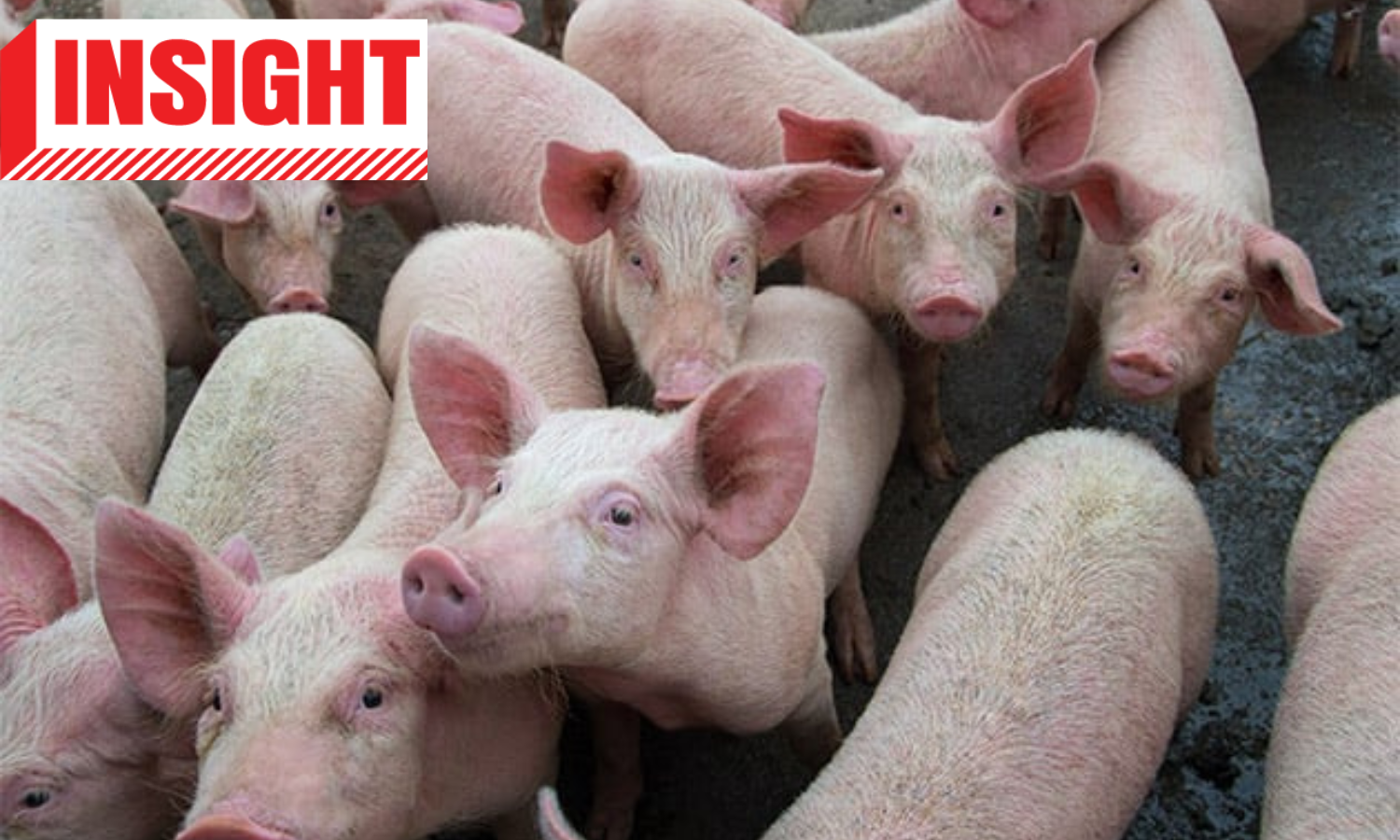Subscribe to our WhatsApp Channel
Sri Lanka has temporarily banned the sale of pork and the slaughter of pigs due to concerns over two diseases: African Swine Fever (ASF) and Porcine Reproductive and Respiratory Syndrome (PRRS). This measure aims to prevent the spread of these infections within the country’s pig population.
Authorities plan to review and revise the ban in the coming week. These temporary restrictions have become a frequent topic of discussion in society, where people share information, opinions, and updates related to the situation.
Media Posts
Sri Lanka recently imposed a temporary ban on the slaughter, sale, and distribution of pigs and pork products to contain the spread of African Swine Fever (ASF) and Porcine Reproductive and Respiratory Syndrome (PRRS). The restrictions are expected to be clarified with revisions next week.
Daily Mirror Reported it in this way.
We decided to search on this.
Fact Check
Summary of Facts
Issuance of Gazette Notification: On October 25, 2024, the Director General of Animal Production and Health, Ms. K.A.C.H. Abeyratne Kothalawala, released an urgent gazette notification prohibiting the slaughter, sale, and transportation of pigs and pork products across Sri Lanka.
This measure, declared under the Animal Diseases Act, was introduced to prevent ASF and PRRS from spreading. The gazette can be read here
In Sri Lanka, African swine fever was initially reported for the first time in the Western Province and has now been detected in the Uva, Northern and North Western provinces as well. More details can be read here.
Regulations Under the Gazette: This nationwide measure enforces strict control over several activities to prevent cross-contamination and outbreak expansion:
Transport Restrictions: Prohibits moving pigs or pork products into, out of, or within declared “infected” or “suspected” areas.
Slaughter Ban: Temporarily suspends all pig slaughtering.
Sale and Distribution Ban: Prevents all sales, distribution, and handling of pork products.
Artificial Breeding and Disposal: This law prohibits the artificial breeding of pigs and mandates responsible disposal of infected carcasses, restricting practices that could contaminate water bodies or further spread the disease.
Expected Amendments Next Week:
In discussions held on October 30, representatives of the pig farm owners’ association voiced concerns, noting ambiguities in the gazette’s regulations. Furthermore, several concerns were raised regarding the nature of the gazette and whether the Sri Lanka context was taken into account.
In response to our queries, Hemali Abeyrathna, the Director General of Animal Production and Health, confirmed that clarifications would be included in an amended gazette, which will be released next week.
As of now, the original restrictions remain in place. She added that in the current situation, many pig farms in the country are free from the ASF disease, and the ban is to stop the further spreading of the virus. DG Animal Production and Health further pointed out that there are some weak points in the initial gazette notification as it was released quickly to control the situation.
Disease Overview
African Swine Fever (ASF):
ASF is a highly contagious viral disease with nearly 100% mortality in infected pigs, making it one of the most devastating diseases for the swine industry.
Although ASF poses no risk to human health, the virus is highly resilient, surviving on clothing, vehicles, and even processed pork products. Human movement can inadvertently spread the virus across borders if biosecurity measures are not strictly enforced. More details can be reached here.
Porcine Reproductive and Respiratory Syndrome (PRRS):
PRRS affects pigs with reproductive and respiratory symptoms. While less fatal than ASF, it significantly hampers pig health, productivity, and swine farm profitability.
This virus, unlike ASF, has been prevalent worldwide, with the U.S. facing economic impacts from both epidemic and endemic PRRS forms. More details can be read here
Global Response to ASF
Taiwan’s Success:
The World Organization for Animal Health (WOAH) declared Taiwan free of ASF, joining Japan as the only East Asian country with this status. Taiwan achieved this through strict border control, rapid detection, and aggressive containment measures.
The ASF-free designation has improved Taiwan’s international competitiveness in pork exports and trade. More details can be read here
United States Precautions:
The U.S. has managed to avoid ASF outbreaks but remains vigilant, particularly after cases in nearby Caribbean nations (Dominican Republic and Haiti) in 2021.
The USDA’s “Protect Our Pigs” campaign provides educational resources to farmers, promotes biosecurity, and highlights the economic threat ASF poses if introduced. The USDA estimates an ASF outbreak could result in $75 billion in economic losses over ten years, affecting consumer prices and trade. More details can be read here.
How to stop the spread of ASF ?? Watch the video below.
ASF reported countries In the APAC region, since August 2018, before Sri Lanka: China, Mongolia, Viet Nam, Cambodia, Democratic People’s Republic of Korea, Lao People’s Democratic Republic, Myanmar, The Philippines, Republic of Korea, Timor-Leste, Indonesia, Papua New Guinea, India, Malaysia, Bhutan, Thailand, Nepal, Singapore, and Bangladesh. Source: FAO
Follow us and stay up to date with our latest fact checks.
Facebook | Twitter | Instagram | Google News | TikTok
Conclusion
The temporary ban on pig slaughter and pork sales in Sri Lanka is accurate and in effect. However, revisions to the regulations are expected next week to address concerns raised by pig farmers. The current ban highlights the urgency of ASF and PRRS containment measures, as these diseases can severely impact the swine industry despite posing no risk to human health.

Title:Know More About the Temporary Ban on Pork Sales in Sri Lanka & Expected Revisions Next Week!
Written By: Fact Crescendo TeamResult: Insight






